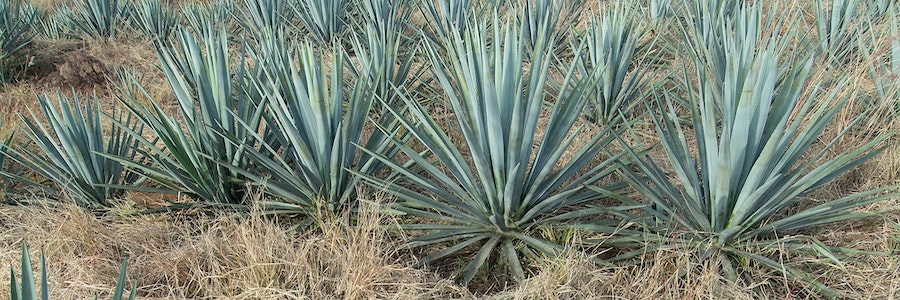A key reason California agriculture remains preeminent in the U.S. and globally can be summed up in one word – innovation.
The current California mega-drought, the most severe in the Golden State in 1,200 years, is stressing agriculture and farming in ways not experienced with previous droughts.
Because of the lack of water, farmers are fallowing tens of thousands of acres of land that as recently as a year ago they planted and harvested crops on.
Since the drought isn’t going to end soon, much of this land will continue to be fallowed, and in the most drought-plagued and water-starved parts of the state like the Central Valley, additional farmland will likely be fallowed next year.
One potential way of dealing with the drought and the resultant fallowing of cropland because of a shortage of water, is to discover new crops that are drought tolerant or require very little irrigation, and can be grown commercially in California.
One potential new drought-tolerant crop receiving serious focus is Agave, which is a succulent that’s part of the lily (amaryllis) family.
The agave plant is used to make tequila and mezcal.
Agave also is used as an ingredient by food makers and sold as a branded product, agave syrup, in grocery stores. Agave syrup is marketed as a healthier alternative to sugar, among other uses. The market for agave is growing fast because the products made from it are experiencing increased consumer demand. The use of agave as an ingredient in food and drink products also is growing rapidly.
Earlier this year a group of farmers who’ve been growing agave in California formed the California Agave Council in partnership with distillers and retailers as a way to foster collaboration, share and increase knowledge, and promote the growth of agave farming in the state.
The California Agave Council and agave farming in California got a big boost in August with the establishment of the Stuart & Lisa Woolf Fund For Agave Research at UC Davis.
The fund was created with a $100,000 seed grant from farmers Stuart and Lisa Woolf, who are currently growing agave in the Central Valley. The initial gift from the Woolf’s will focus primarily on optimizing agave production in California, according to Emily C, Dooley, communications specialist UC Davis.
Since agave is a drought-tolerant plant, growers and researchers believe it offers great potential in drought-plagued California, because it’s a plant that can get by with minimal or even no water during periods of drought. For example, the agave grown in Mexico is not irrigated. Instead its growth is sustained entirely by rain water.
There are currently about 40 farmers growing agave in California. One of those growers, Craig Reynolds, is the founding director of the California Agave Council, as well as the founder of Agave Ventures, which grows blue agave, used to make tequila, and sells starter plants to other growers and farmers interested in testing the crop.

The establishment of the council, along with the establishment of the research program at UC Davis, should result in many more farmers, particularly those who’ve fallowed some of their acreage, joining the ranks of agave growers, at least on a test basis.
Additionally, with UC Davis on board – the University’s work has been indispensable in the creation of the California wine and craft beer industries – the potential for California to become a major agave-growing state, along with the creation of an agave industry, is greatly enhanced.
Until the 1980’s, for example, the California craft beer industry consisted of only a handful of entrepreneurs. Today, California is the leading state in the nation when it comes to craft beer production. Additionally, without the involvement of UC Davis, the California wine industry, from grape growing to wine-making, would not be what it is today, the fourth-largest producer of wine in the world, behind France, Italy and Spain.
Big crises like drought, wildfires and climate change require big solutions – and also offer opportunity in the form of innovation.
Innovation though requires innovative people and an infrastructure to support their ideas. California is fortunate to have all the above – innovative farmers and entrepreneurs who are full of good ideas and potentially positive solutions, along with a land-grant higher education system with research capabilities in agriculture that are the best in the world.
Without all the above, new ideas in agriculture like growing an agave industry wouldn’t be possible. With all the challenges facing California agriculture today, it’s more important than ever to fund and sustain the innovators and institutions of innovation and research in the state because the future of food and farming in California depends on it.
My Job Depends on Ag Magazine columnist and contributing editor Victor Martino is an agri-food industry consultant, entrepreneur and writer. One of his passions and current projects is working with farmers who want to sell directly to consumers or develop their own branded food products. Contact: [email protected].







